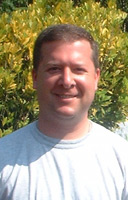The Selected Works of Anthony J. Frisby, PhD
Implementing a Practice Doctorate Program at a Distance through an Urban-Rural Partnership
Beth Ann Swan, Thomas Jefferson University; Anthony J. Frisby, Thomas Jefferson University; Lori S. Lauver, Thomas Jefferson University; Margaret M. West, Thomas Jefferson University; Mary Powell, Thomas Jefferson University; Ksenia Zukowsky, Thomas Jefferson University; and Alexis Marsella, Thomas Jefferson University
DATE: April 2008
RELATED URL: http://www.nonpf.com/
View the article (240 KB PDF)
ABOUT THIS DOCUMENT:
Poster presentation at the April 200 National Organization for Nurse Practitioner Faculties (NONPF)
Conference Brochure: http://www.nonpf.com/NONPF2005/Meetings/Louisville08brochure6.pdf
ABSTRACT:
The purposes of this poster presentation are to 1) describe the implementation of a doctor of nursing practice (DNP) program by providing access to rigorous distance education to students living in rural Pennsylvania; 2) discuss building a critical mass of doctorally prepared advanced practice nurse experts in both urban and rural communities; and 3) share formative and summative evaluation information.
Through funding from the U.S. Department of Health and Human Services, Health Resources and Services Administration, Bureau of Health Professions, Division of Nursing, the Jefferson School of Nursing (JSN) expanded its DNP program currently offered at the urban Philadelphia campus to the rural campus in Danville. Using the methodologies of live web-casting and live video over the Internet, distance students are afforded the opportunity to participate in a live classroom setting rather than experience the static distance methodology of reading through lectures themselves. For example, during the applied biostatistics course, the faculty teaches onsite in Philadelphia projecting the SPSS and the database on screen so that students on both campuses can simultaneously view, hear, and interact with the discussion. There is a doctorally prepared faculty member onsite in Danville as a resource for the students.
These newer technologies make possible real-time faculty-student dialogue, student-to-student dialogue, and enhance socialization. Furthermore, the use of advanced technologies allows distance students to discuss with peers and faculty alike, in real time, the problems, successes, and questions which arise during class and clinical practica, thereby enhancing critical thinking and diagnostic reasoning skills.
This unique urban-rural partnership, made possible through advanced technologies, addresses increasing demands for educating greater numbers of doctorally prepared advanced practice nurses to work in north and central rural Pennsylvania, thus promoting access to health care in rural underserved communities. Other than in academia, there are no doctorally prepared advanced practice nurses employed in practice in the area.

